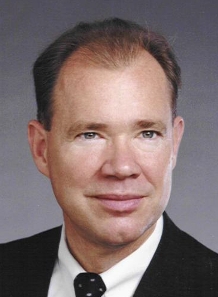Jon Coupal of the Howard Jarvis Taxpayers Association and Adam Summers of the Reason Foundation
Over the last two decades, state lawmakers have bestowed massive pension and benefit increases upon government workers. Unfortunately, taxpayers are now getting the bills for these handouts.
Recent studies estimate California has $500 billion in unfunded pension liabilities, not to mention over $50 billion in unfunded retiree health care liabilities. It’s important for the state to recognize how it got into this fiscal disaster-and how to get out of it. 
California’s public pension and retiree health and dental care expenditures have quintupled since fiscal year 1998-99, going from about $1 billion to $5 billion this year. And retirement spending is expected to triple again-to $15 billion-within the next decade.
The benefit increases doled out by Sacramento are also crushing the state. Consider that public pension benefit increases passed in 1999 via SB 400, which offered retroactive benefit increases to government workers, were supposed to cost $650 million in 2010. The actual costs of SB 400 to taxpayers: $3.1 billion this fiscal year and $3.5 billion next year.
To make matters even worse, California is the only state in the nation that calculates pension benefits based on an employee’s highest salary in a single year. Most states use three- or five-year periods to determine pension benefits, making their systems less susceptible to pension spiking. SB 2465, which implemented the one-year final salary rule in 1990, has cost taxpayers more than $100 million a year. It was supposed to cost “only” $63 million per year. The results are lavish pensions for government workers and big bills for taxpayers. California taxpayers are now paying pensions that exceed $100,000 a year to over 12,000 former state and local government workers, including more than 9,000 state and local employees covered by the California Public Employees’ Retirement System (CalPERS) and over 3,000 former school administrators or teachers covered under the California State Teachers’ Retirement System (CalSTRS).
This pension crisis threatens to bankrupt the state. To his credit, Gov. Arnold Schwarzenegger has urged action on this issue but current reform proposals merely tinker around the edges of the current defined-benefit system and do not go nearly far enough. There are several steps California must take to permanently get pension costs under control.
The private sector long ago abandoned defined-benefit pensions due to their volatility and unsustainable costs. California is going to have to do the same. Close the defined-benefit pension plans for state employees and enroll all new or future employees in 401(k)-style defined-contribution plans for pensions and other post-employment benefits, such as retiree health care and dental benefits. These 401(k) retirement plans are good enough for the rest of the population; they should be good enough for government workers.
To prevent the handouts and pension favors that politicians have been giving to certain groups, California should adopt an amendment to the state constitution requiring that all future government employee benefit increases be approved by voters, who end up stuck with the bills. It should also pass another amendment prohibiting retroactive benefit increases.
In the short-term, the state should also require employees who have previously retired to forfeit their retirement checks while they are on the state’s payroll to avoid double-dipping and collecting multiple checks, as over 5,000 former state employees are doing today.
California’s pension and retiree health care benefits are unaffordable and unsustainable. Gov. Schwarzenegger and a few politicians, from both sides of the political aisle, are now calling for action on this tremendous problem. They’d better hurry. Taxpayers are sick and tired of being forced to pay ever-greater amounts of their hard-earned money towards increasingly generous benefits for government employees, all while their own retirement accounts shrink amidst the recession. To avoid bankruptcy, governments at all levels are going to have to switch from defined-benefit pensions to more affordable 401(k)-style defined-contribution systems.
(Check out the new Reason Foundation study on California’s Pension Crisis: Link to summary/link to full study.)
Jon Coupal is President of the Howard Jarvis Taxpayers Association (more information below). Part of the problem is the growth of state government. Since 1998, California’s state workforce has grown by 31 percent and taxpayers now pay for more than 356,000 state workers. Even during this terrible recession, instead of cutting back, California has added over 13,000 workers to the state payroll since 2008.
Part of the problem is the growth of state government. Since 1998, California’s state workforce has grown by 31 percent and taxpayers now pay for more than 356,000 state workers. Even during this terrible recession, instead of cutting back, California has added over 13,000 workers to the state payroll since 2008.




